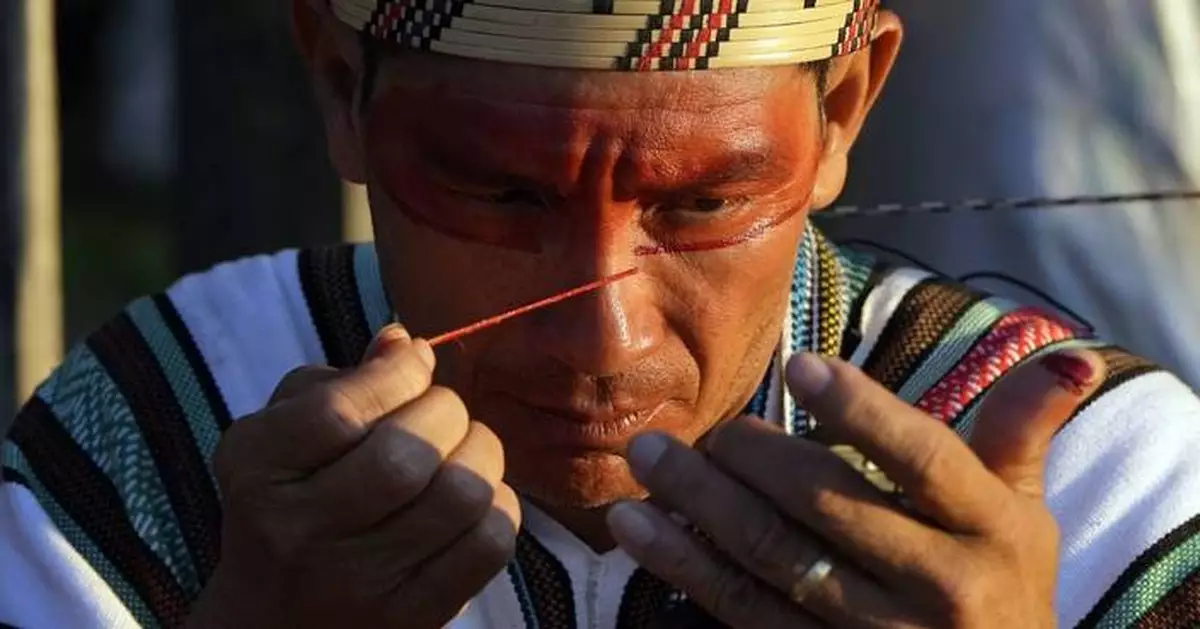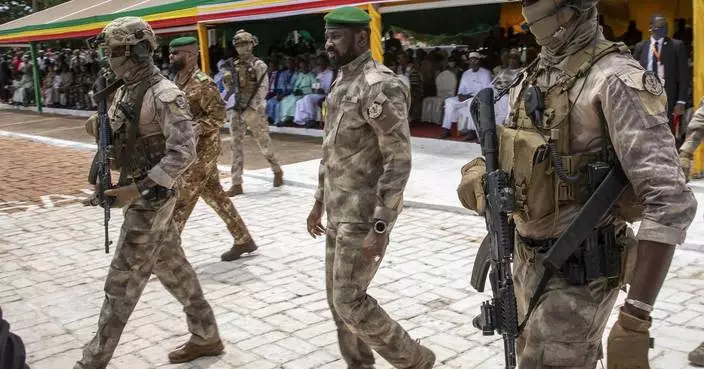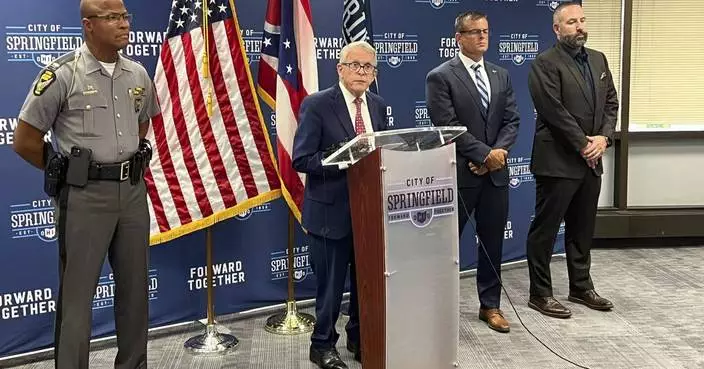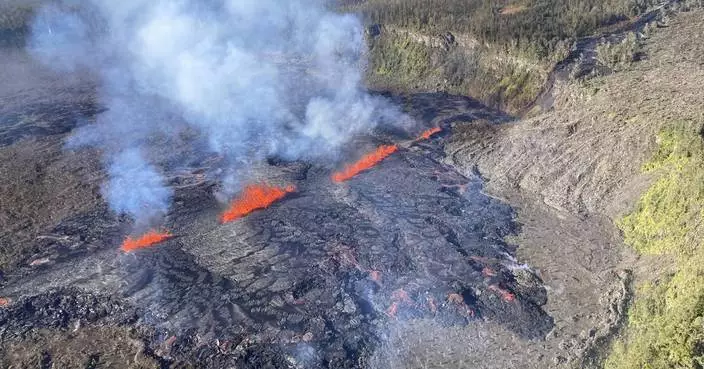APIWTXA VILLAGE, Brazil (AP) — It was just before dawn when the Ashaninka people, wearing long, tunic-like dresses, began singing traditional songs while playing drums and other instruments. The music drifted through Apiwtxa village, which had welcomed guests from Indigenous communities in Brazil and neighboring Peru, some having traveled three days. As the sun rose, they moved beneath the shadow of a huge mango tree.
The dancing, which would last until the following morning, marked the end of the annual celebration recognizing the Ashaninka territory along the winding Amonia River in the western Amazon. The multi-day, nearly around-the-clock festivities included the ritual of drinking ayahuasca, the sacred psychedelic brew, archery tournaments, climbing towering acai palm trees and face-painting with red dye.
What was once a gathering to commemorate the Ashaninka has evolved into a showcase of what they have done: the village’s self-sufficiency, which comes from growing crops and protecting its forest, is now a model for an ambitious project to help 12 Indigenous territories in western Amazon, amounting to 640,000 hectares (1.6 million acres), about the size of the U.S. state of Delaware.
In November, the Organization of Indigenous People of the Jurua River, known by the Portuguese acronym OPIRJ, secured $6.8 million in support from the Amazon Fund, the world’s largest initiative to combat rainforest deforestation. With Apiwtxa as the model, the grant is geared toward improving Indigenous land management with an emphasis on food production, cultural strengthening and forest surveillance.
“We are expanding everything that we did at Apiwxta to an entire region," said Ashaninka and OPIRJ leader Francisco Piyãko, speaking in front of his home in Apiwtxa. "This is not only about implementing a project. What is at stake is cultural change. This is essential to protect life, the territory and its peoples.”
EDITOR’S NOTE: This is part of a series of on how tribes and Indigenous communities are coping with and combating climate change.
Indigenous groups have long argued that they are in the best position to conserve and protect forests, having been successful stewards of lands for thousands of years. Indigenous land management is increasingly a central policy discussion at climate talks as global warming worsens and other methods to protect forests, such as carbon credit schemes, have largely not been successful.
In Brazil, Indigenous territories comprise 23% of the Amazon region, which is roughly the size of South Africa and largely covered with old-growth rainforests that store large quantities of carbon dioxide, a greenhouse gas that drives climate change when released into the atmosphere. In 2022, only 2% of all deforestation in the Amazon happened inside Indigenous territories, most by non-Indigenous land-grabbers. In Ashaninka's Amonia territory, the deforested area today is 0.03%, underscoring the tribe's successful forest management.
Thirty-two years ago, when the Brazilian government recognized the Ashaninka’s territorial rights, the area where Apiwtxa sits was a sprawling cattle farm run by non-Indigenous settlers. Loggers had degraded the remaining forest, depleting the region of mahogany and other valuable trees. Indigenous families lived scattered and in fear. With few options, some worked for farmers and loggers in slave-like conditions.
The land demarcation, which forced outsiders to leave, opened the door to reforestation and cultural rebirth. The Ashaninka transferred their main village, Apiwtxa, to an abandoned pasture in a strategic location for surveillance. In the following years, the village leadership, spearheaded by Francisco Piyãko's father, Antônio, and his siblings, set up a governance system focused on the collective good and self-sufficiency, according to an article coauthored by anthropologist Carolina Comandulli and the Apiwtxa Association.
In Apiwtxa today, each one of the 80 families must take care of an area of forest that includes fruit trees and medicinal plants. Around the village, there are also agricultural plots with cassava, potato, banana and other produce. Over the years, the Ashaninka have replanted trees such as mahogany.
Apiwtxa’s expansive traditional huts are surrounded by fishponds and land that combines crops and forest, providing food for their school, cotton for clothing, the vine that yields the sacred Ayahuasca hallucinogenic brew, urucum trees for dye extraction, palm trees to build thatched roofs, medicinal plants and embauba trees that provide strings for bows.
The land management systems sustain various dimensions of Ashaninka's daily lives, said Comandulli, the anthropologist.
“They support their autonomy, which is something they value greatly,” she said. "They seek food sovereignty, aim to control their own house construction, medical healing and engage in the economic process of market relations, by which handicrafts become a source of income.”
Just as important, the Ashaninka created a strategy of developing relationships with neighboring communities, Indigenous and non-Indigenous, to create a “buffer zone,” as well as to reach institutions outside the region.
Wewito Piyãko, president of the Apiwtxa Association and Francisco’s brother, said that successful management, including stopping invasions from outsiders like loggers or miners, required working both within their territory and beyond.
“That's why we created this policy of working with the surrounding areas, so they understand what we are doing is for our benefit and theirs, too,” said Piyãko.
The Ashaninka started expanding efforts beyond their territory in 2007, founding the Yorenka Atame, or Knowledge of the Forest Center, close to the nearest town, Marechal Thaumaturgo, a three-hour boat trip from Apiwtxa. There, the Ashaninka created a project integrating crops and forest preservation, a small factory to process fruit and a venue for events with non-Indigenous allies.
In 2015, the Amazon Fund granted the Apiwxta Association, led by the Piyãko clan, $2.2 million to improve agroforestry in its territory and extend the experience to other Indigenous tribes and riverine communities. It was the first time that the fund, backed mostly by Norway but also by the U.S. and other countries, financed an Indigenous organization.
The next year, Isaac Piyãko, brother of Wewito and Francisco Piyãko, was elected mayor of Marechal Thaumaturgo, a town of 17,000 people, mostly non-Indigenous, historically run by business owners who profited from rubber-tapping and families with ties to logging and cattle ranching. It was the first, and so far only, time that an Indigenous leader had become a mayor among the 22 municipalities of Acre state. In 2020, Piyãko was reelected.
Francisco said the Ashaninka leader’s candidacy was based on the same principle as OPIRJ’s project: to spread their experience to the entire region, including non-Indigenous areas. One of the Apiwtxa’s projects that became municipal policy under Isaac has been the purchase of local school meals from small farming families, thus reducing industrialized products such as canned sardines brought from thousands of kilometers (miles) away.
Despite that success, climate change has impacted local production, making it one more issue the Ashaninka must confront. Last year, during record drought in the Amazon, the Amonia River’s water was so warm that for the first time the Ashaninka stopped bathing in it and thousands of fish died. This year, Amazon communities are again suffering from widespread drought.
“The culprits for this live far from us," said Francisco, speaking about climate change, which historically industrialized nations have been most responsible for. "But if we start pointing fingers, we’ll waste a lot of energy and solve nothing. Instead, we’re focusing on adaptation. We’re identifying the best places to build houses and grow crops, improving access to water and managing fire risks.”
Another beneficiary of the OPIRJ project is the Apolima-Arara territory. It is located in a stretch of the Amonia River between Apiwtxa and Marechal Thaumaturgo and is one of Brazil's most recently demarcated Indigenous lands. President Luiz Inácio Lula da Silva signed its designation into law in April 2023, following a two-decade struggle for recognition.
The Apolima-Arara, who participated in the Ashaninka's festivities along with Yawanawa, Huni Kuin, and other tribes, are dealing with some of the same problems faced by their neighbors decades ago. Part of their territory has been deforested by non-Indigenous people, and they are working to improve their agricultural production. The main village, Nordestino, has largely eliminated surrounding pasture by planting trees.
So far, the OPIRJ project has provided agricultural equipment and a boat for territorial surveillance.
“Apiwtxa is an example to us. No Indigenous people retook their territory easily," Apolima-Arara leader José Angelo Macedo Avelino said from inside the village's collective hut, accompanied by other tribe members. “Apiwtxa suffered just like us, and now their territory is recovered. We plan to do the same.”
The Associated Press’ climate and environmental coverage receives financial support from multiple private foundations. AP is solely responsible for all content. Find AP’s standards for working with philanthropies, a list of supporters and funded coverage areas at AP.org.
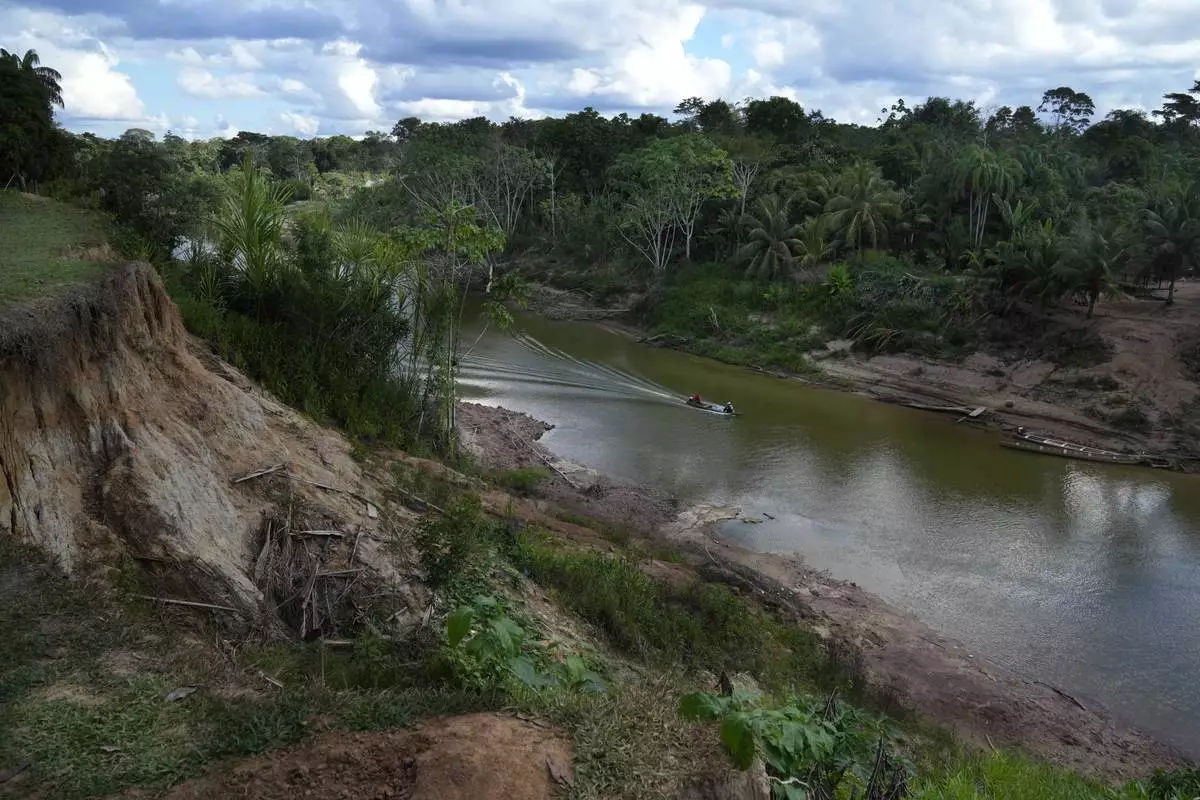
A motorized boat maneuvers Amonia River at in the Apiwtxa village, Acre state, Brazil, Saturday, June 22, 2024. (AP Photo/Jorge Saenz)
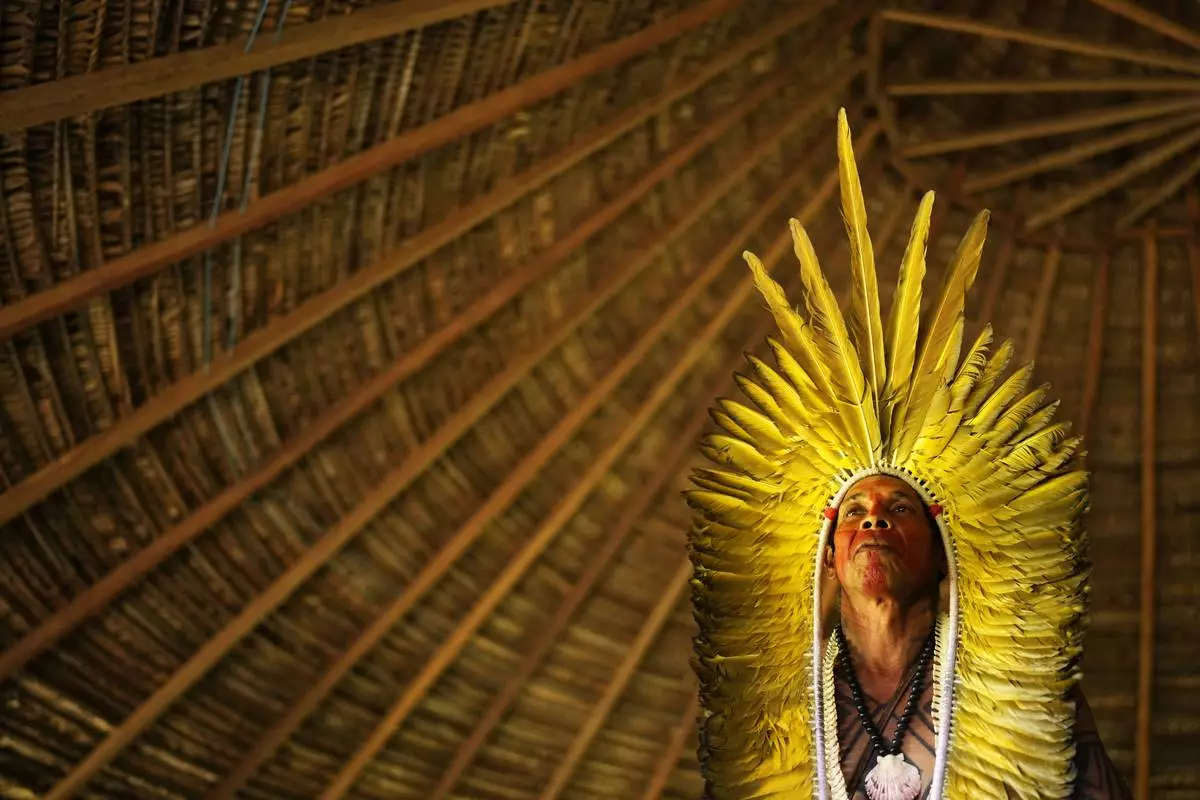
Apolima-Arara leader Jose Angelo Macedo Avelino sings in Nordestino village, Acre state, Brazil, Monday, June 24, 2024. (AP Photo/Jorge Saenz)
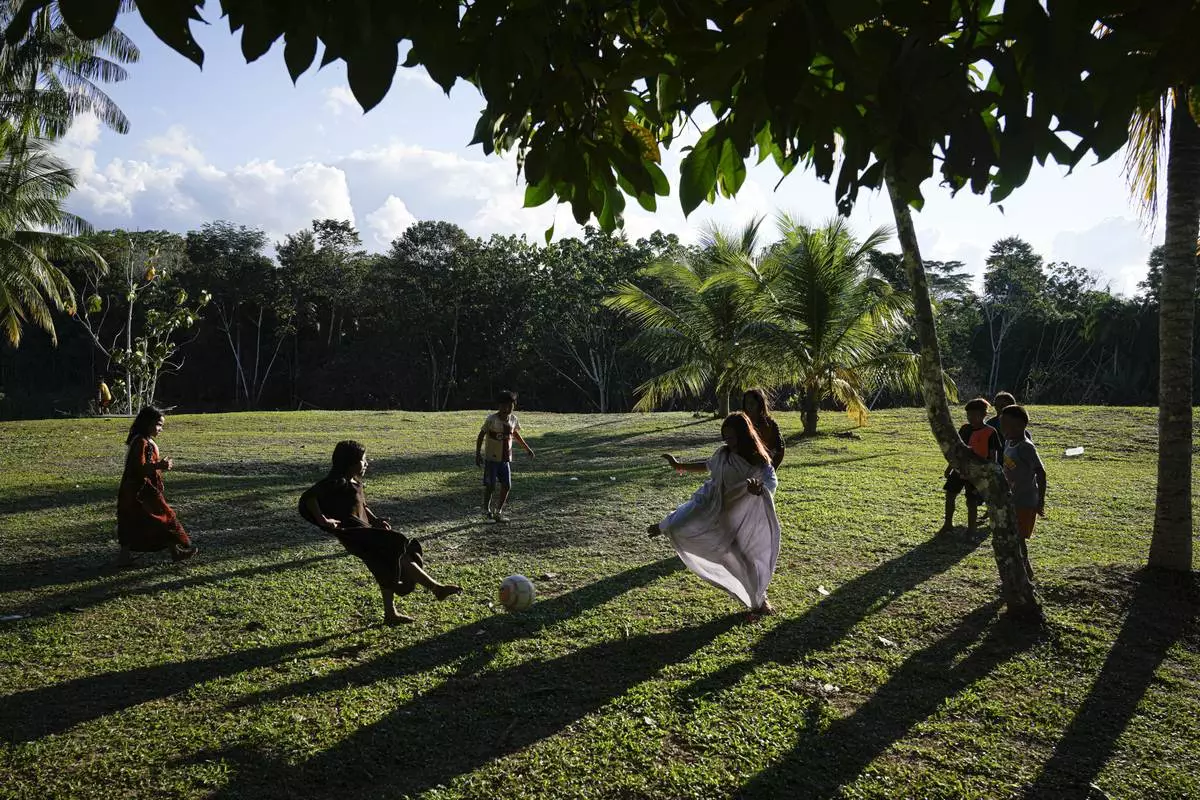
Ashaninka Indigenous children play with a ball in the Apiwtxa village, near Marechal Thaumaturgo city, Acre state, Brazil, Saturday, June 22, 2024. (AP Photo/Jorge Saenz)
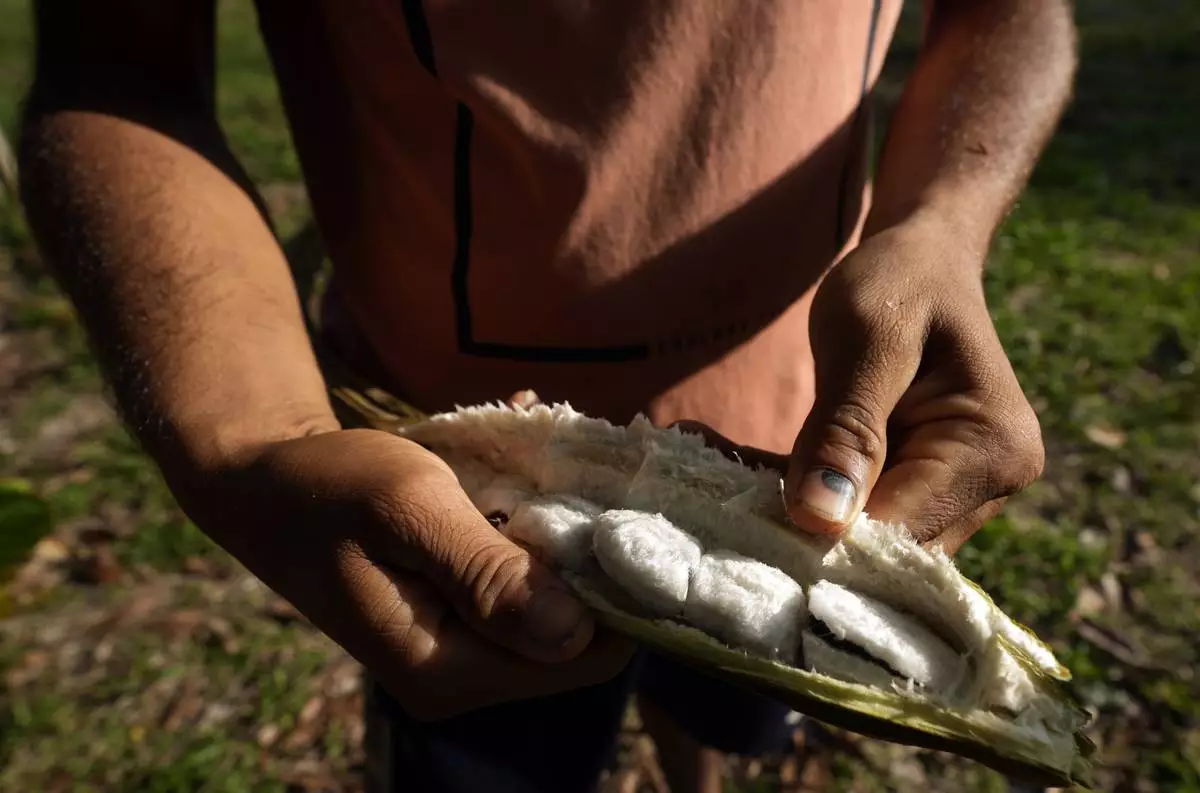
Reforestation worker Leonilson Silva shows Inga fruits harvested from a tree at Marechal Thaumaturgo, in Acre state, Brazil, Wednesday, June 26, 2024. (AP Photo/Jorge Saenz)
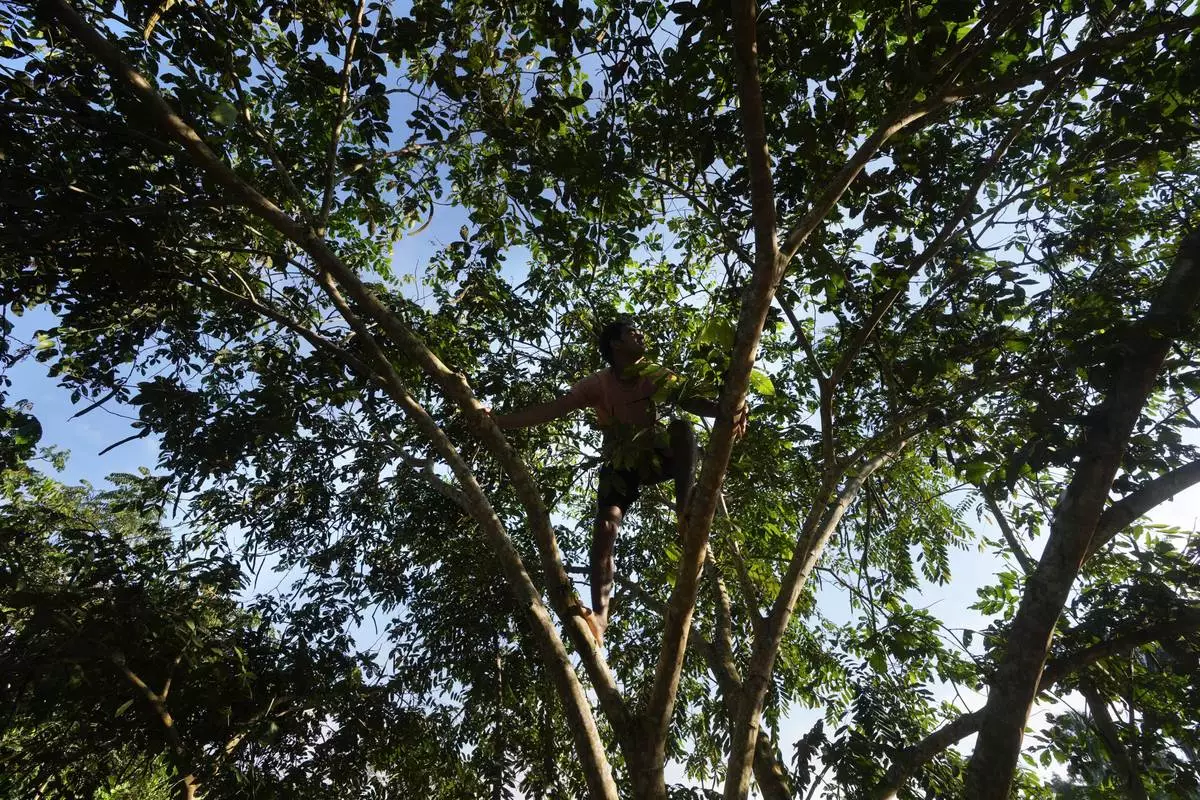
Reforestation worker Leonilson Silva harvests Inga fruits from a tree at Marechal Thaumaturgo, in Acre state, Brazil, Wednesday, June 26, 2024. (AP Photo/Jorge Saenz)
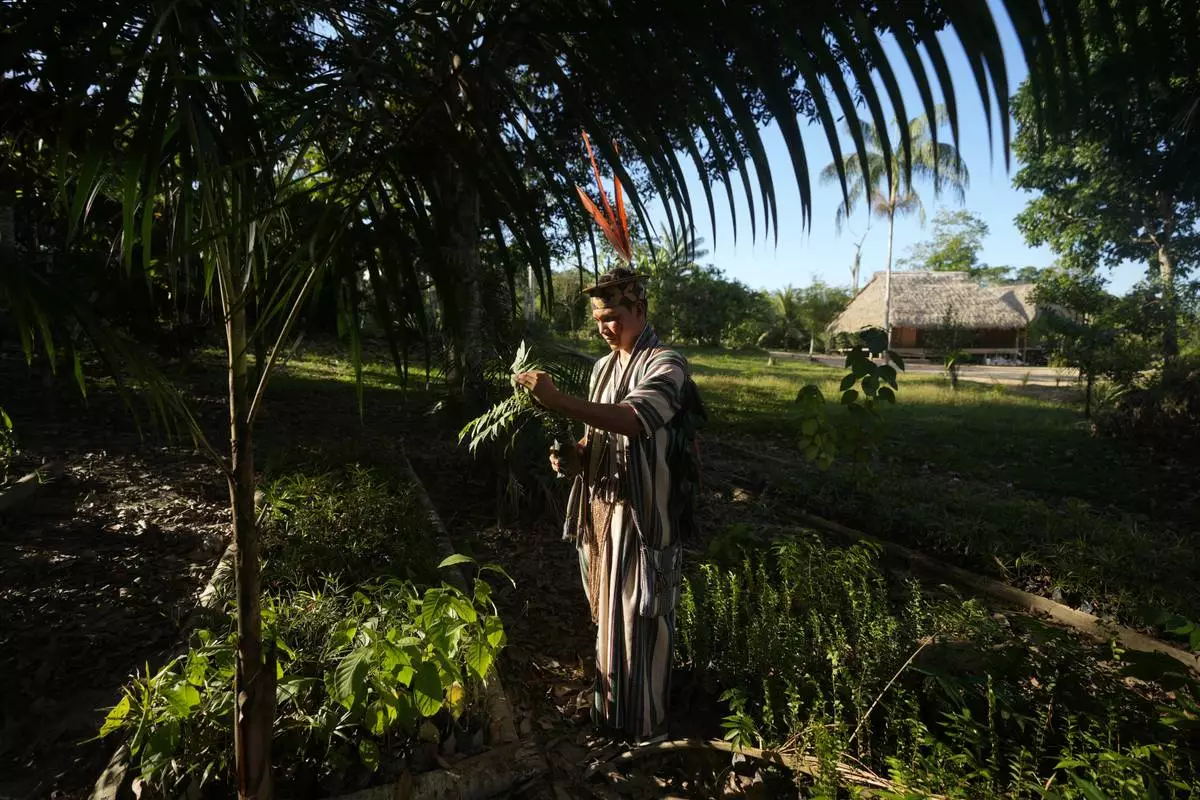
Ashaninka Indigenous youth Tayriykari inspects cedar baby trees for reforestation in the Apiwtxa village, Acre state, Brazil, Monday, June 24, 2024. (AP Photo/Jorge Saenz)
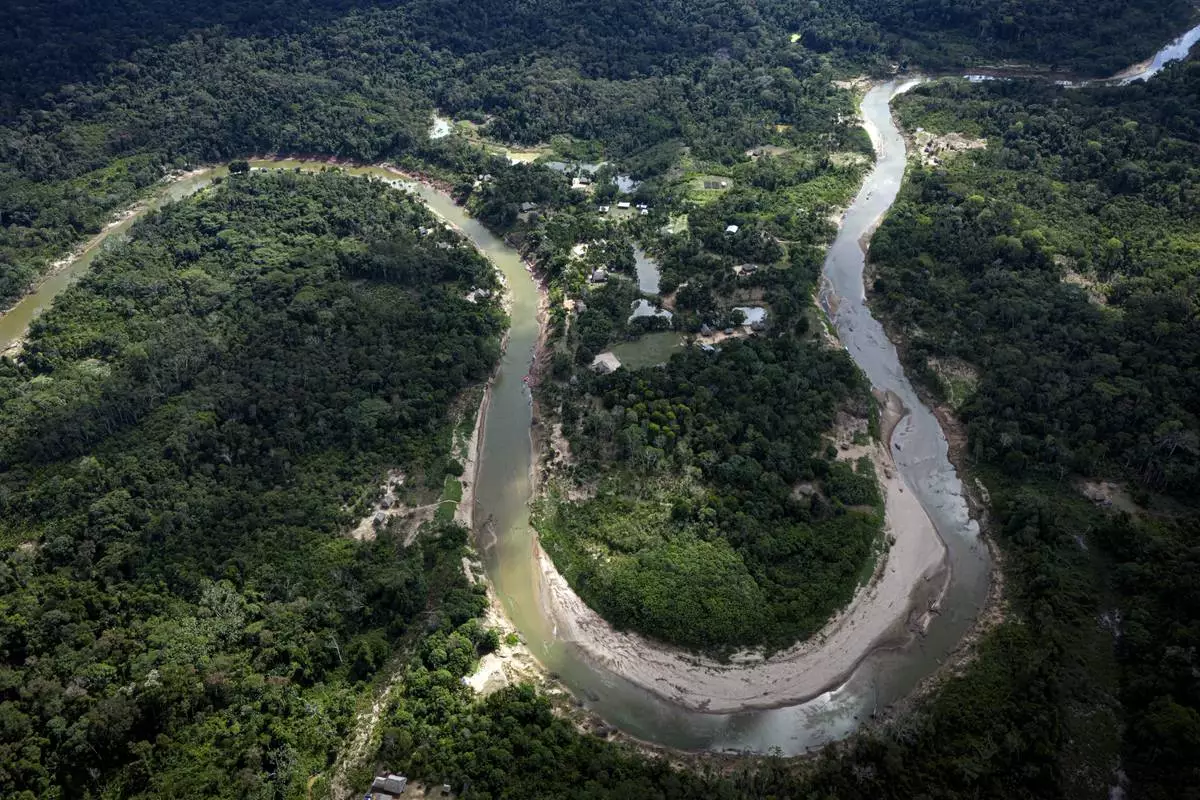
Ashaninka's territory sits along the winding Amonia River in Acre state, Brazil, Saturday, June 22, 2024. (AP Photo/Jorge Saenz)
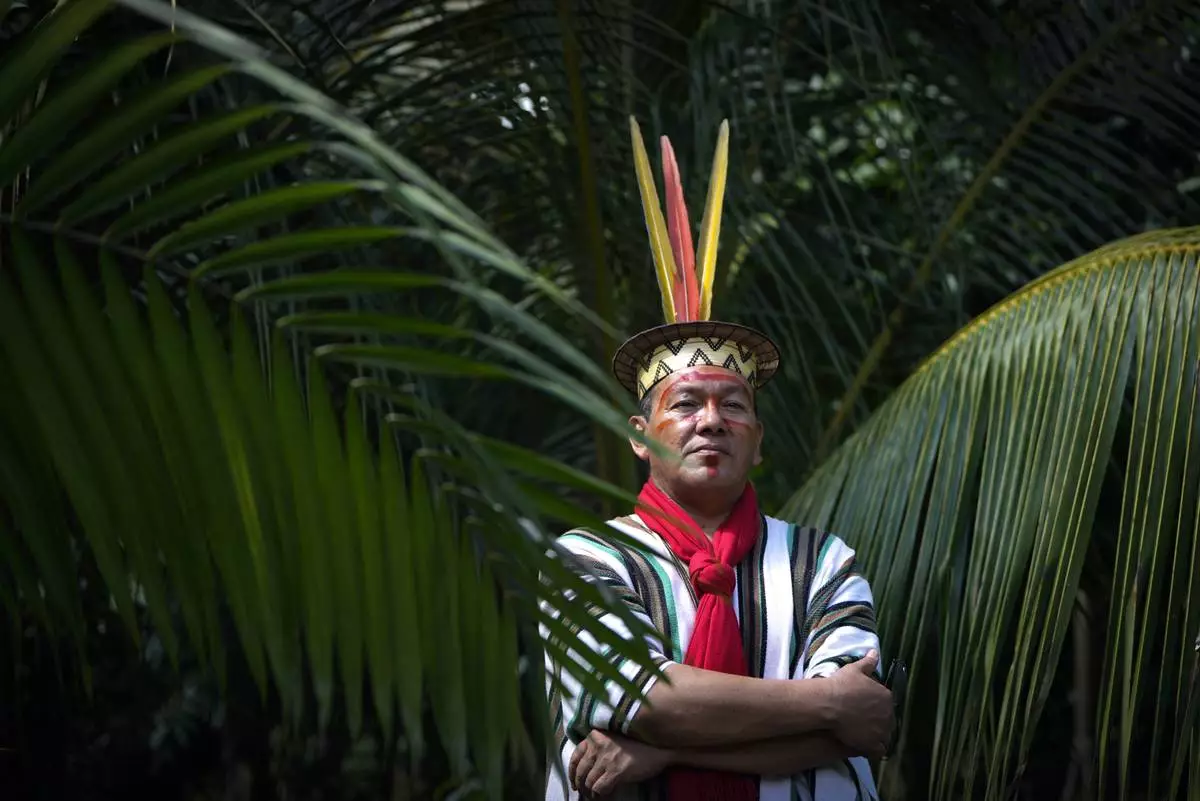
Ashaninka Indigenous leader Francisco Piyako poses for a portrait during the annual celebration recognizing the Ashaninka territory in the Apiwtxa village, Acre state, Brazil, Monday, June 24, 2024. (AP Photo/Jorge Saenz)
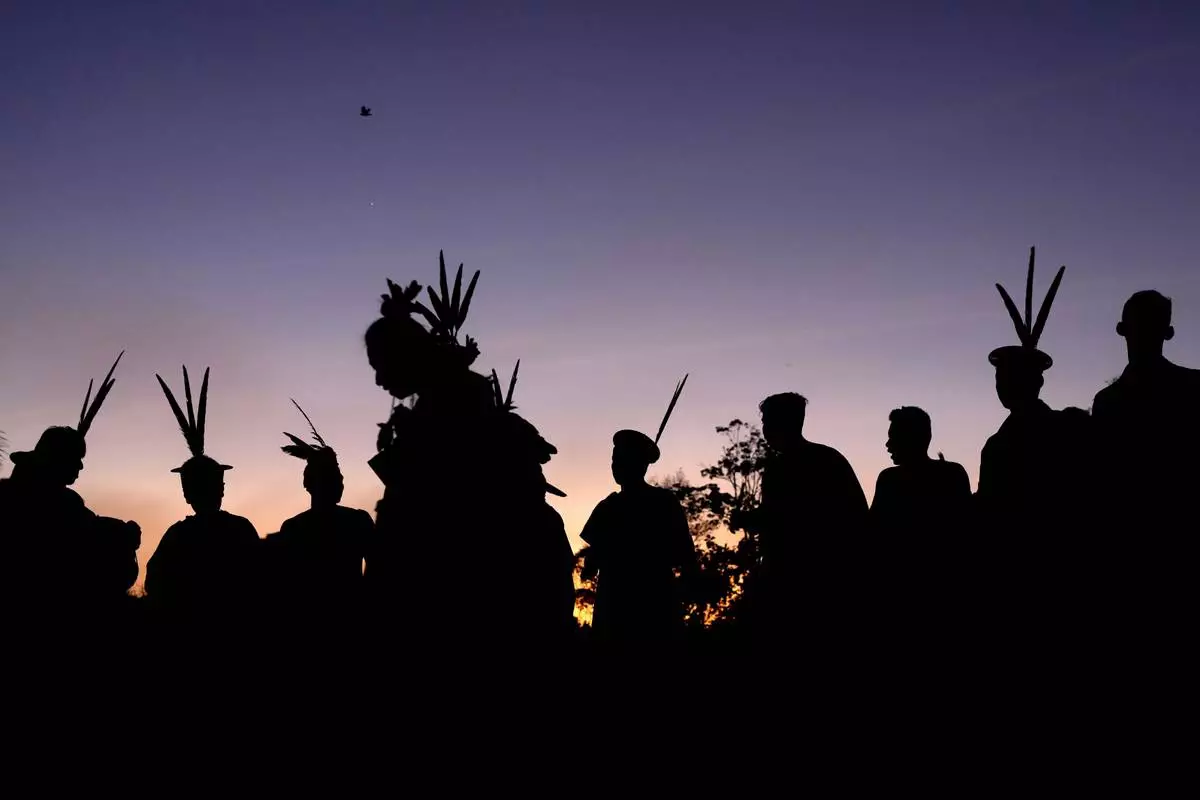
Ashaninka Indigenous people from Brazil and Peru dance and sing at dawn during the annual celebration recognizing the Ashaninka territory in the Apiwtxa village, Acre state, Brazil, Monday, June 24, 2024. (AP Photo/Jorge Saenz)
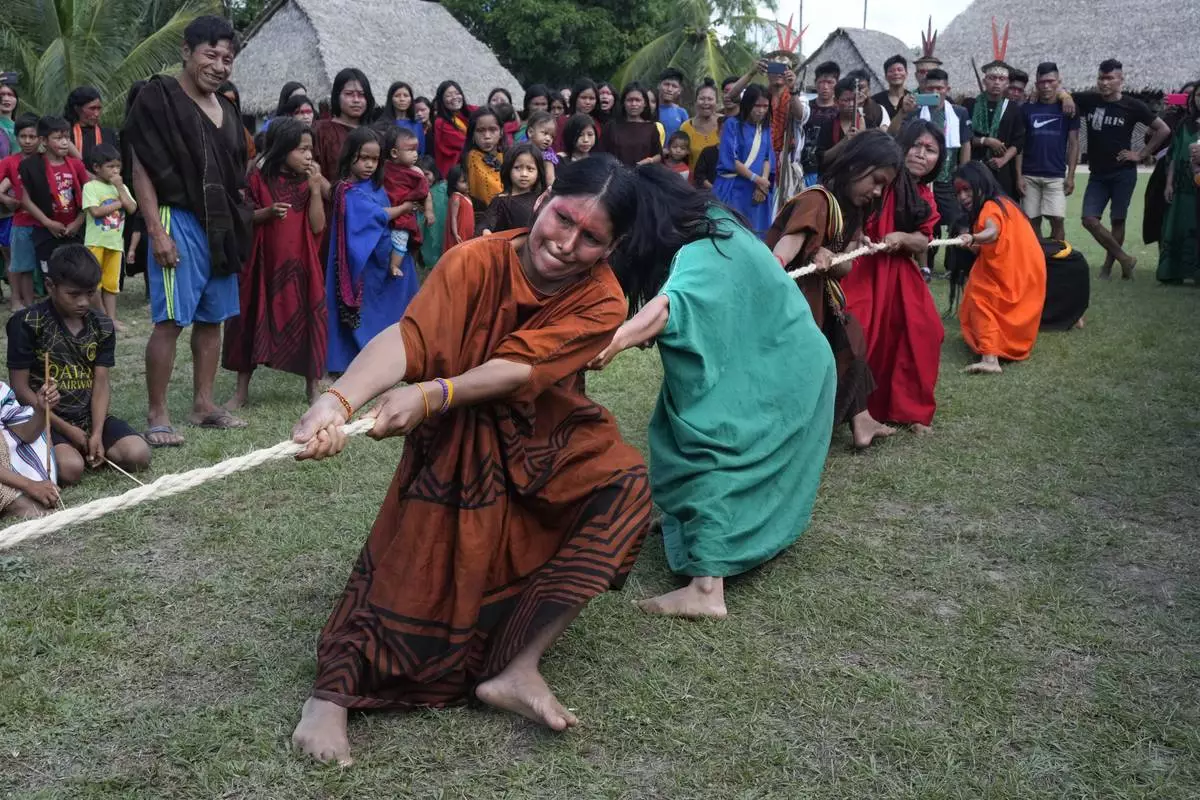
Ashaninka Indigenous women participate in tug-of-war during the annual celebration recognizing the Ashaninka territory in the Apiwtxa village, Acre state, Brazil, Sunday, June 23, 2024. (AP Photo/Jorge Saenz)
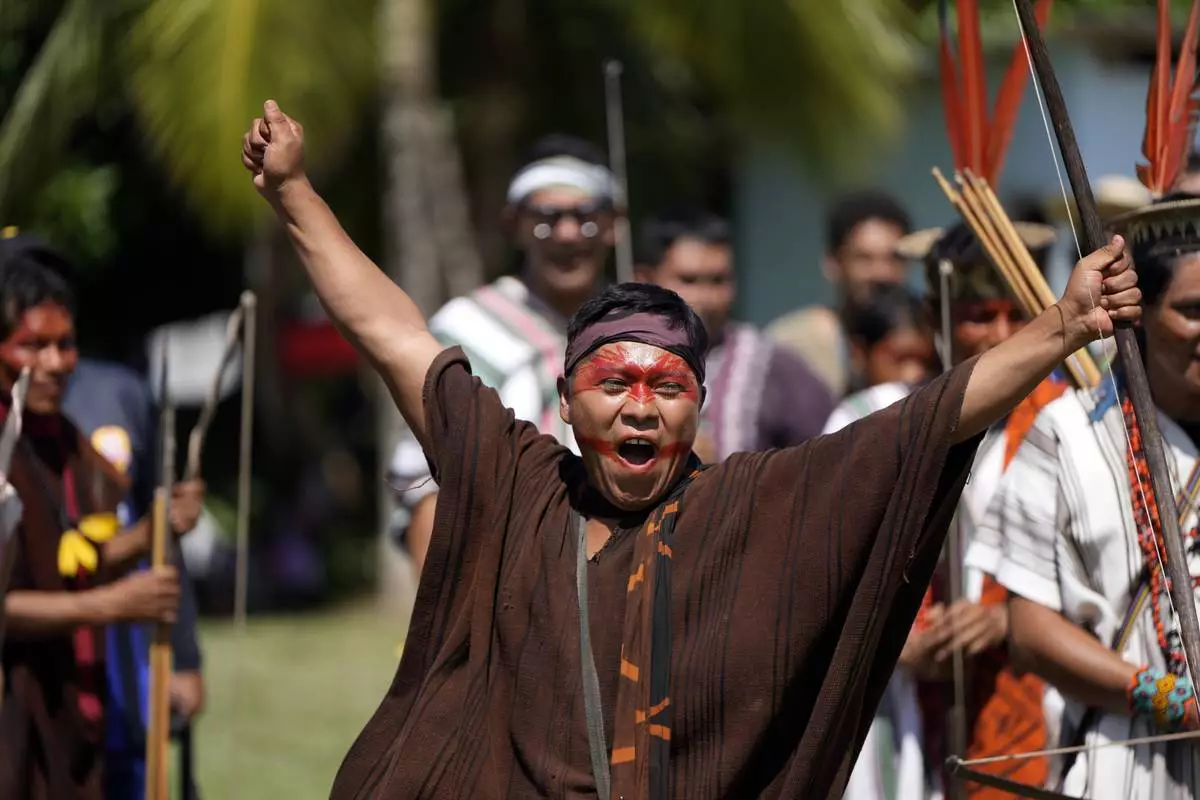
Kamato Ashaninka from Peru reacts to hitting the bullseye in a bow and arrow competition during the annual celebration recognizing the Ashaninka territory in the Apiwtxa village, Acre state, Brazil, Sunday, June 23, 2024. (AP Photo/Jorge Saenz)
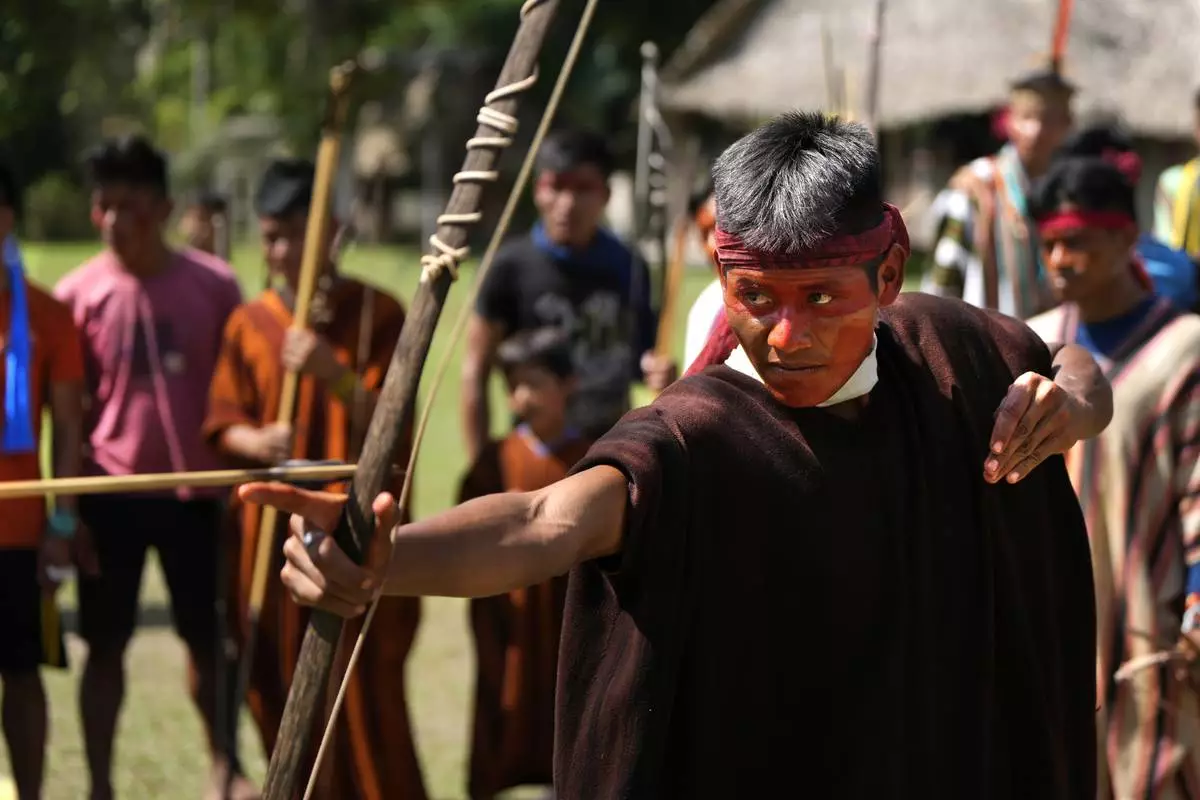
An Ashaninka Indigenous youth participates in a bow and arrow competition during the annual celebration recognizing the Ashaninka territory in the Apiwtxa village, Acre state, Brazil, Sunday, June 23, 2024. (AP Photo/Jorge Saenz)
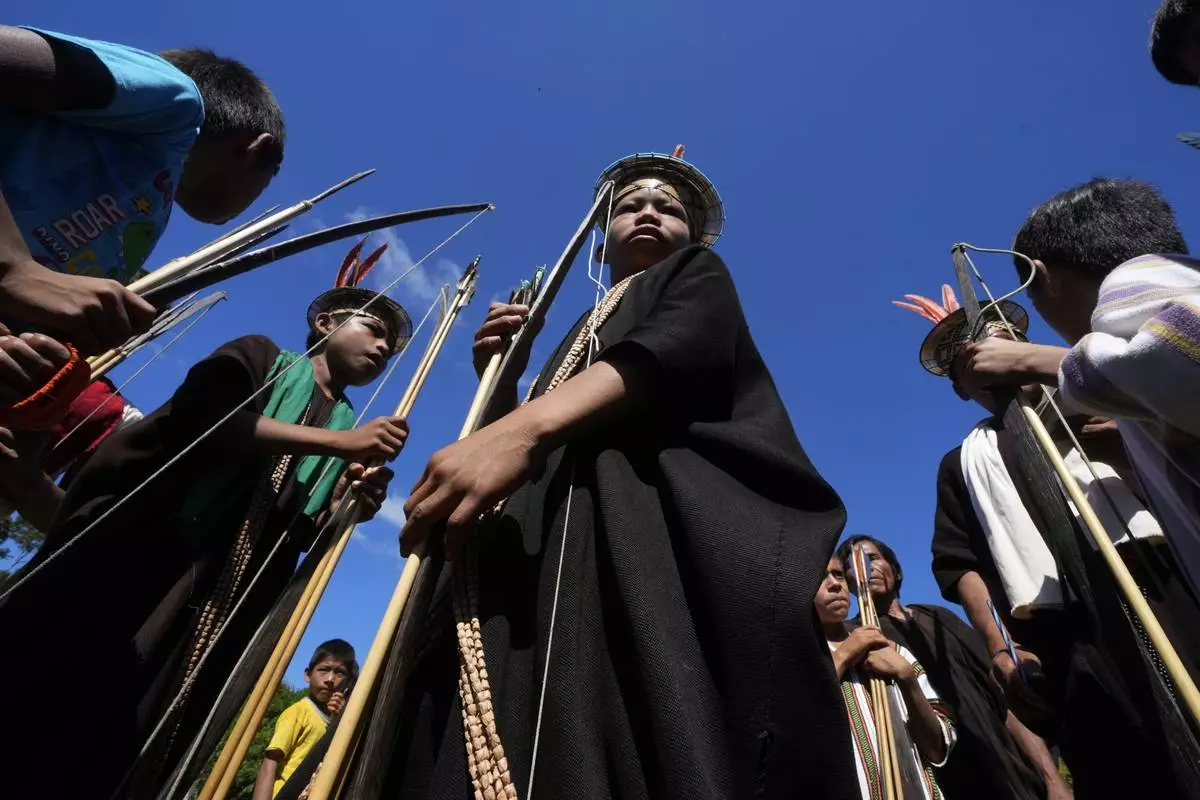
Ashaninka Indigenous children prepare for a bow and arrow competition during the annual celebration recognizing the Ashaninka territory in the Apiwtxa village, Acre state, Brazil, Sunday, June 23, 2024. (AP Photo/Jorge Saenz)
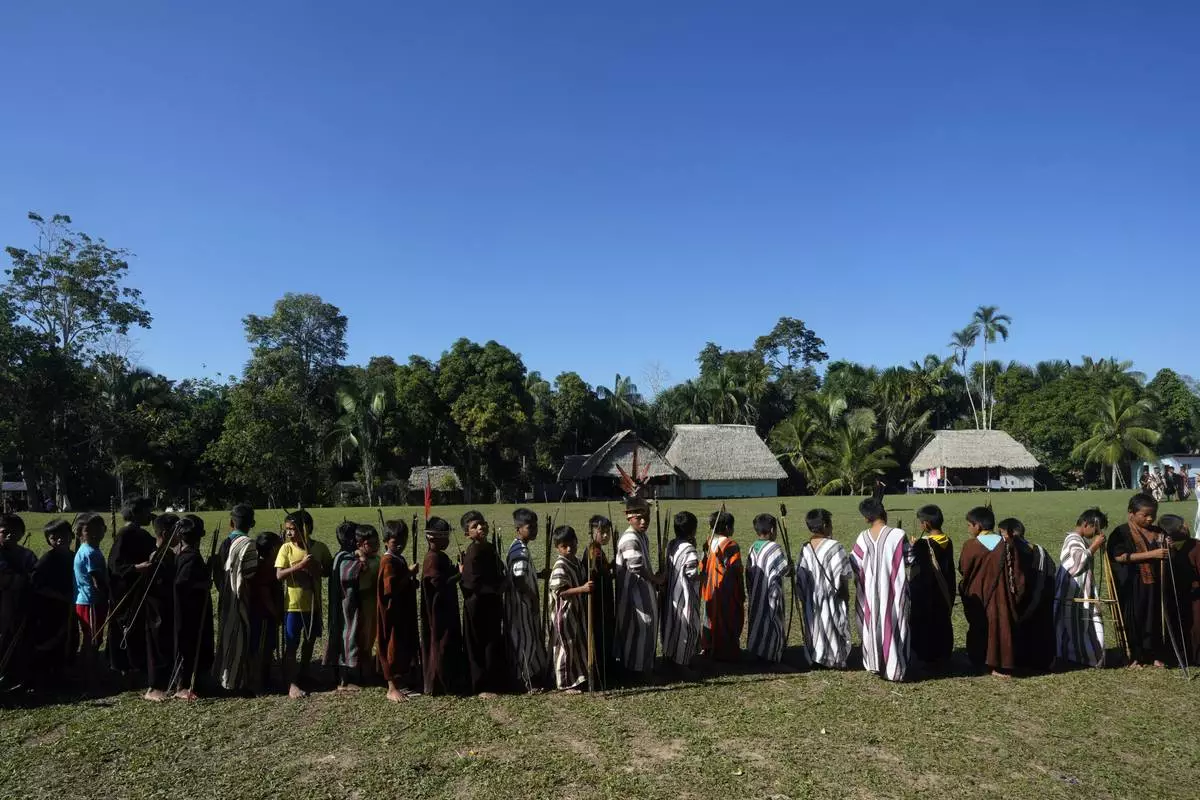
Ashaninka Indigenous children prepare for a bow and arrow competition during the annual celebration recognizing the Ashaninka territory in the Apiwtxa village, Acre state, Brazil, Sunday, June 23, 2024. (AP Photo/Jorge Saenz)
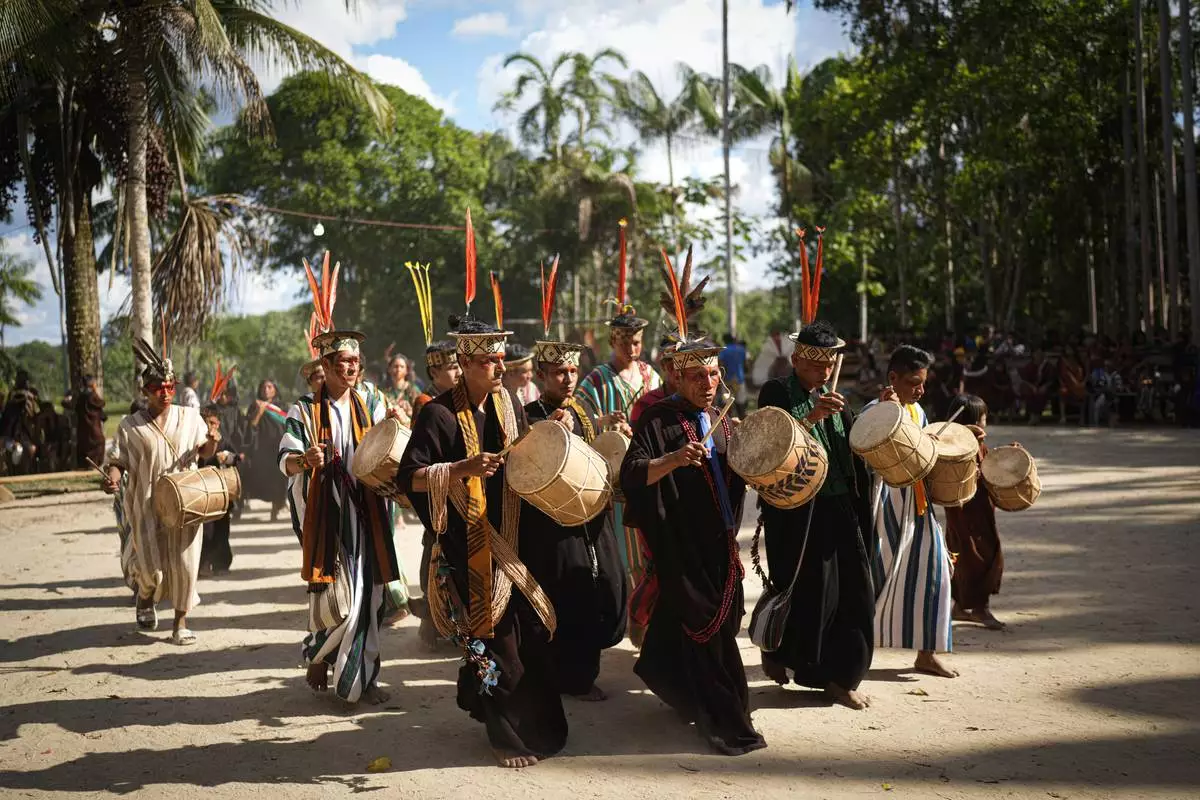
Ashaninka Indigenous musicians from Brazil and Peru perform during the annual celebration recognizing the Ashaninka territory in the Apiwtxa village, Acre state, Brazil, Monday, June 24, 2024. (AP Photo/Jorge Saenz)
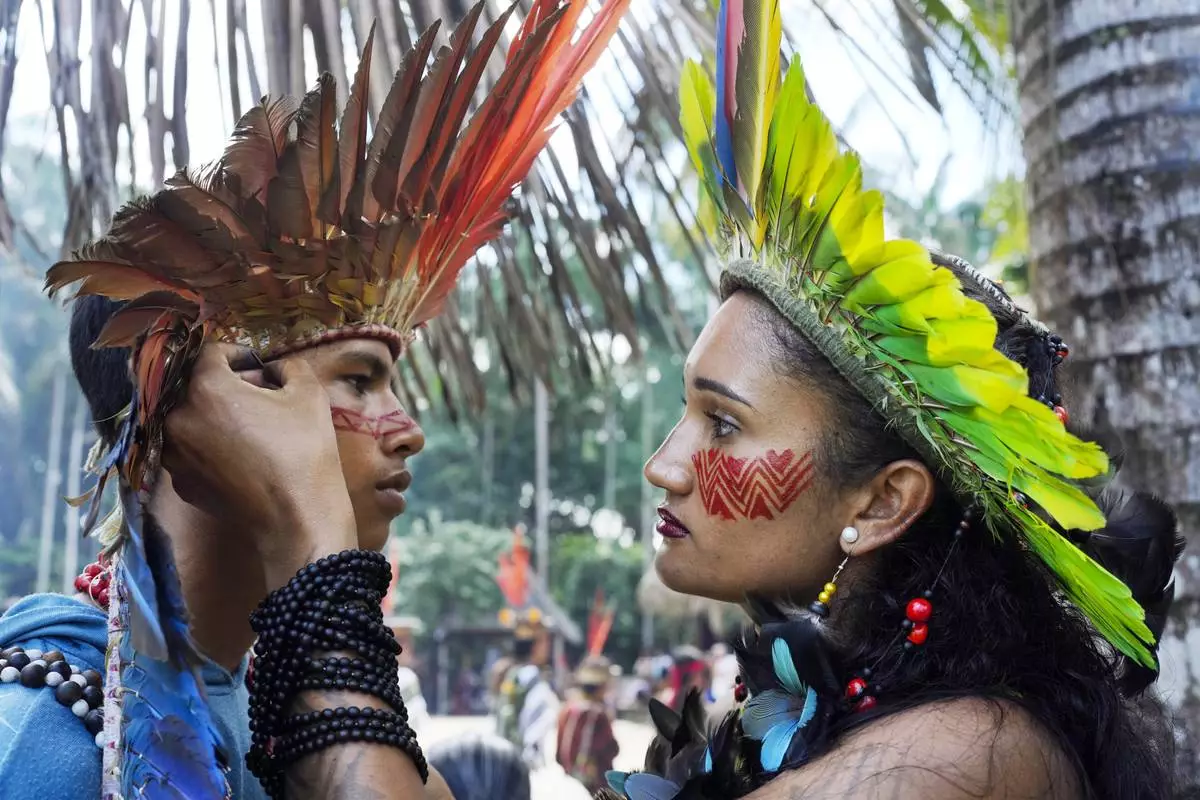
Apolima-Arara Indigenous youth Ozileia Macedo, right, puts face paint on Antonio Acassio Avelino de Oliveira, during the annual celebration recognizing the Ashaninka territory in the Apiwtxa village, Acre state, Brazil, Monday, June 24, 2024. (AP Photo/Jorge Saenz)
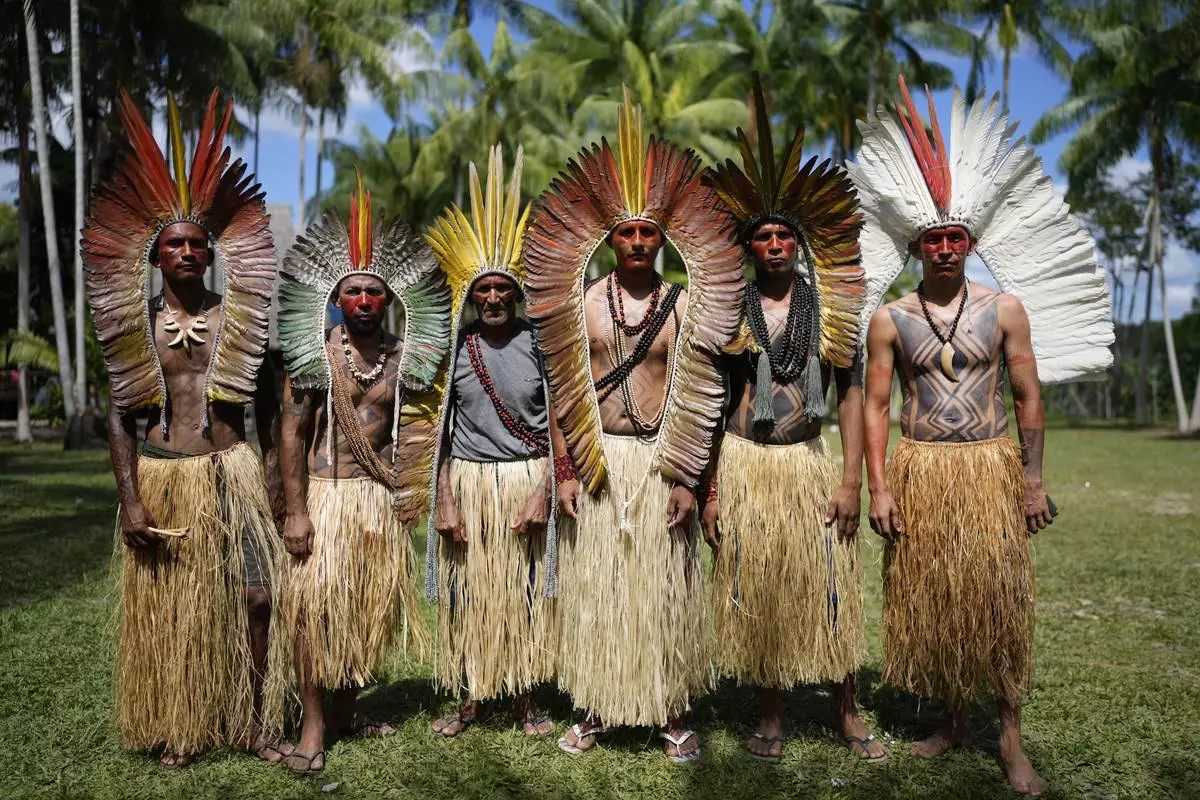
Apolima-Arara Indigenous men pose for a picture during the annual celebration recognizing the Ashaninka territory in the Apiwtxa village, Acre state, Brazil, Monday, June 24, 2024. (AP Photo/Jorge Saenz)
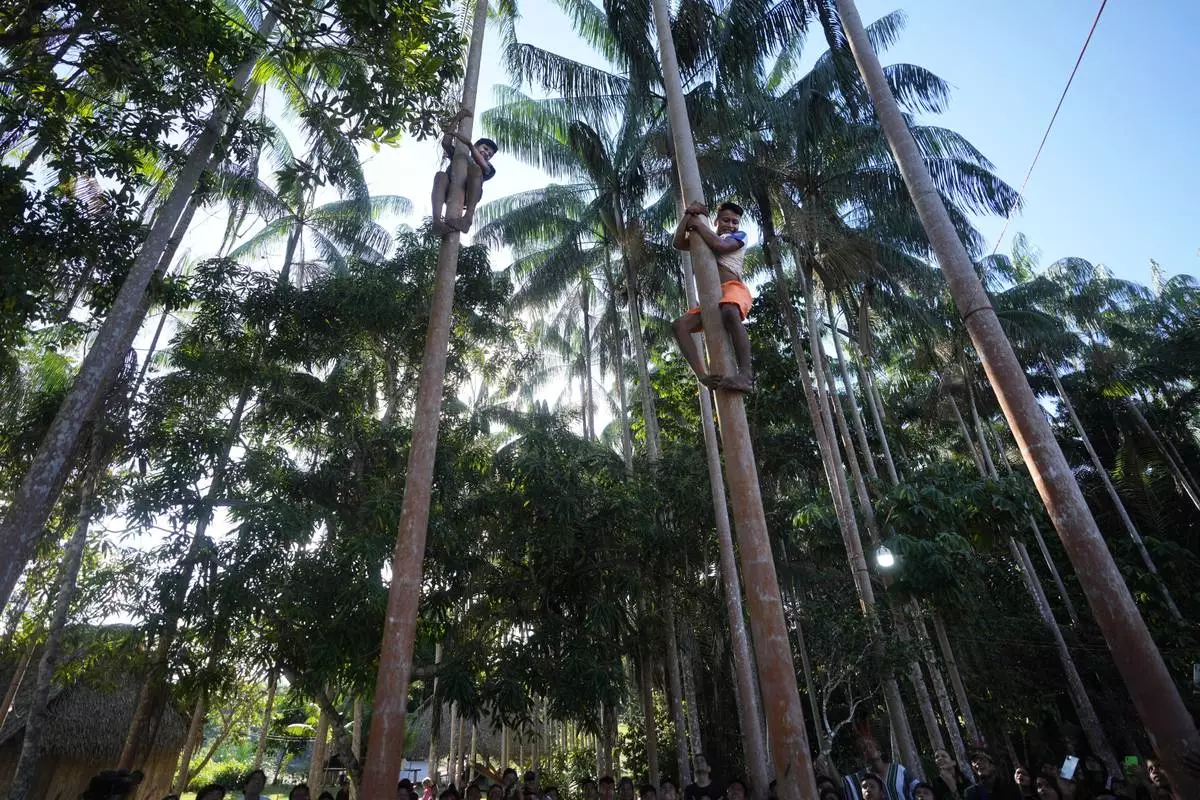
Ashaninka Indigenous youths from Brazil and Peru compete by racing up the trunk of an acai tree during the annual celebration recognizing the Ashaninka territory in the Apiwtxa village, Acre state, Brazil, Sunday, June 23, 2024. (AP Photo/Jorge Saenz)
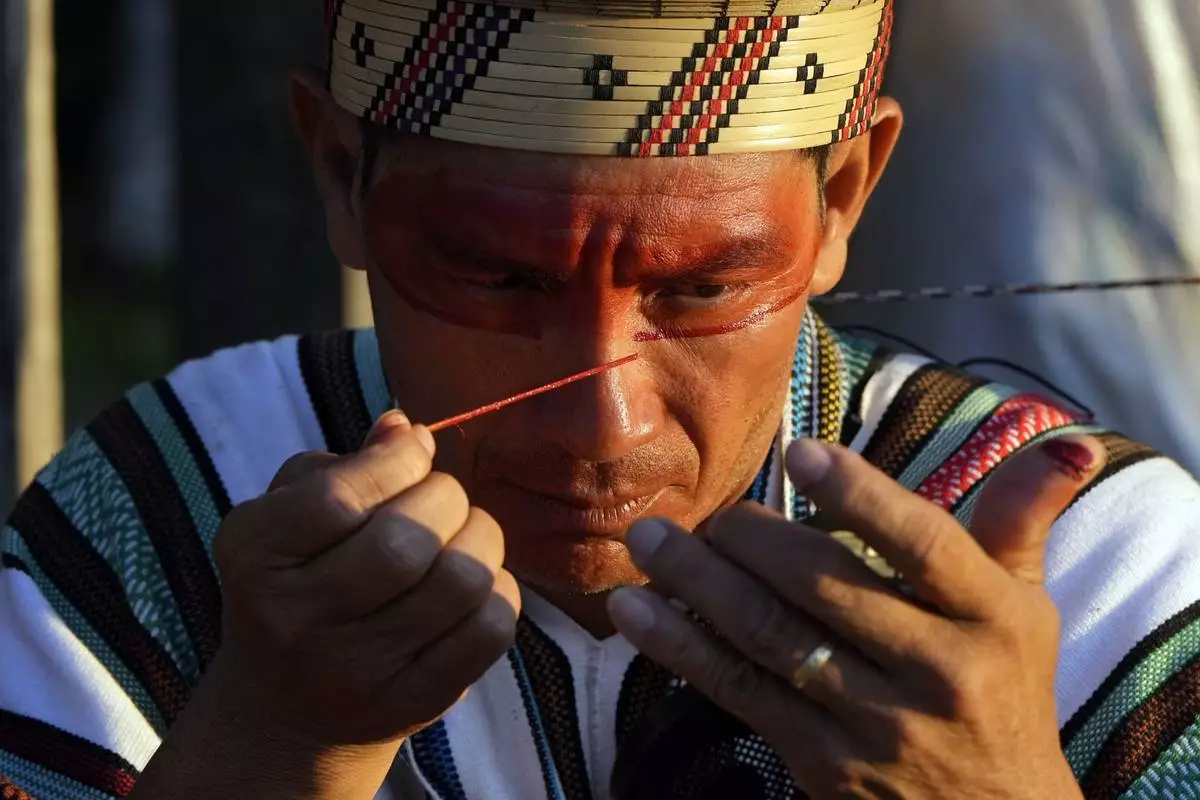
An Ashaninka Indigenous man applies face paint during the annual celebration recognizing the Ashaninka territory in the Apiwtxa village, Acre state, Brazil, Monday, June 24, 2024. (AP Photo/Jorge Saenz)


